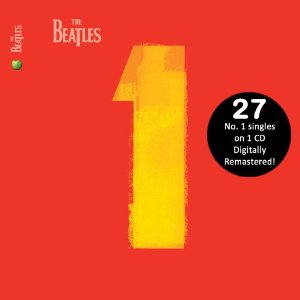On Being The Beatles or The Guess Who: Posterity & Writing for the Ages
October 21, 2011
 Writing for posterity may be as old as writing itself. Poets, novelists, essayists, and philosophers all write with the hope that their work will survive them — even if they deny it — living on to touch new readers in distant ages.
Writing for posterity may be as old as writing itself. Poets, novelists, essayists, and philosophers all write with the hope that their work will survive them — even if they deny it — living on to touch new readers in distant ages.
Some writers never lived to see their work gain an audience or even a small, devoted readership. Some, like Robert Browning, obsessed about it.
Alas, the quote from Walter Lowenfels that adorns this blog is a daily reminder to me of the fate of almost all of us.
How much of our writing will survive, will last, will live to find readers throughout our lifetime and beyond?
I was struck by this question twice this week.
The first was Tuesday night, having dinner with twin brother poets Dan and David Simpson. We were talking about the fact that none of the three of us had published collections of our work, despite “success” placing individual poems in journals and magazines, and the awards and accolades we’ve received over the years.
David told of an encounter with a writing mentor who reviewed his draft manuscript. The mentor suggested they each go through the script and rate the poems numerically: 1, 2, 3; then they would compare the results and see what came of it.
My friend was dumbfounded that the mentor found so few 1s among the collection — really only a few — and only a few 2s as well. The 3s weren’t even worth mentioning and probably should be discarded, suggested the mentor.
Bruised as David’s ego was by the experience, I found some solace in it.
“How many #1 singles did The Beatles have?” I asked David. (27 is the answer.)
“So, okay, we can agree that none of us are The Beatles,” I offered. “But we could be, say, The Guess Who.” (That group had only had one number 1 single, “American Woman,” for three weeks May 9 -29, 1970, yet we all know the song and you probably have it streaming in your head right now at its mere mention.)
We agreed that we would be lucky to have one “hit” poem continue to be read by people after our deaths. We’d be delighted if a handful survive us, yet it’s helpful to have some perspective.
A few days later I received a request for permission to reprint a piece of writing I did in 1993. This is the most widely reprinted thing I’ve written and, I’m afraid, will likely survive any and all of my creative work.
The piece is a review of N. Scott Momaday‘s In the Presence of the Sun: Stories and Poems, 1961-1991 that I wrote for The Bloomsbury Review. I have had more requests to reprint that one 1500-word review than any other piece of writing I have done — ever.
It’s even been made available for students on such services as eNotes: Scott Edward Anderson (review date 1993).
I re-read the piece this morning — it’s not a bad piece of writing, as reviews go, and certainly lives up to eNotes’ description: “Anderson provides a thematic and stylistic review of In the Presence of the Sun.”
Yet, when I wrote the review, I never imagined it would be my most cited, most reprinted, perhaps even my most read piece of writing.
If only the strong survive may this piece rock on.

October 21, 2011 at 11:23 am
Very absorbing article. Thank you for sharing it. Something to take to heart.
October 29, 2011 at 3:27 pm
[…] On Being The Beatles or The Guess Who: Posterity & Writing for the Ages (seapoetry.wordpress.com) […]
November 4, 2011 at 3:16 pm
Its true that we do write but how many reach that far …I standing here so far in Oman and wonder how many really have like my work and would it reach the hands of reader